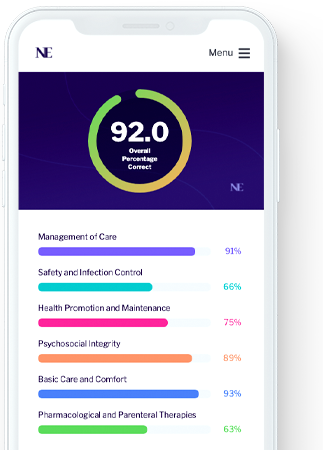Creating a Positive Workplace for Nurses: 6 Strategies for Nursing Managers
For any group of nurses, solid leadership can breathe life into the team dynamic. As a nurse manager, you may feel your work is cut out for you: it’s a tough time for healthcare workers. Your budget for staffing may leave you stretched, and your nurses overworked. So what can you do to support them?
1. Listen to Your Nurses
As a manager, you may have left the bedside some years ago. It’s incredibly easy to forget the ins and outs of a nursing shift and to fall behind on what nurses deal with today. This is completely normal and natural, but since you may miss a few things, take advantage of your “troops on the ground.”
Your nurses have great ideas, and while you probably can’t use all of them, listen for the golden nuggets. You may feel exhausted from hearing what feels like an ongoing list of complaints. But while you can and should encourage your nurses to express their frustrations constructively, also try and hear past the whine or anger to catch the seed of truth in the middle.
2. Don’t Overuse Buzzwords
Resiliency. This word was the anthem of the COVID pandemic. It’s a great word. Inspiring. But it was overused, and a lot of nurses are allergic to it now. Buzzwords become popular for a reason: they communicate well.
Keep in mind, though, that if these catchy words and phrases aren’t followed by action, they will quickly lose their potency. They can even build resentment in your staff. Be sure that your inspirational messaging leads to real change, and your staff will love it!
3. Give Your Nurses Room to Learn
Medical progress never stops, and neither should a nurse’s education! Learning new things can keep your nurses from feeling stagnant at their job. Not only that, but continuing education keeps your staff razor-sharp and able to give their patients the best possible care.
Your facility may offer a lot of these, so let your nurses know about every opportunity. If your organization lacks learning experiences, talk to upper management and push for some. You could even hold some sessions yourself.
4. Be Visible
Any team gains morale from its leader taking charge. Picture a battle scene where the captain runs out ahead of everyone vs. a battle where the leader lurks in the back. Walk around the unit, help turn a patient now and then, and get to know your staff.
The more you show your nurses that you are not above lending a helping hand and hanging out a bit, the more comfortable they’ll be bringing things to your attention. Leading by example garners respect.
5. Show Respect
Speaking of respect, make sure your nurses know they have yours. You can show your staff how highly you think of them in a lot of different ways:
- Brag on them in public
- Include them in important unit decisions
- Listen attentively
- Reward hard work
- Speak respectfully
Something as simple as scheduling staff meetings at convenient times goes a long way to show respect. Ask your nurses if they feel respected, and if not, why. They’ll let you know.
6. Fight for Your Staff
In the show Ted Lasso, the main character–Ted–starts a suggestion box. As a new coach, he reads piles of little papers suggesting he leave and never come back. But buried in that stack, someone lets him know the water pressure in the showers is terrible. He does not leave–he stays. And he fixes the water pressure.
Small things make a difference. Fight for what your nurses need. Talk to your director of nursing or CEO. Be the voice for your staff. They will see that you have their backs, and even if the issue is slow to resolve, they will appreciate the effort you made for them.
When you take the time to make your floor or facility a great place to work, your staff will work harder, better enjoy their job, and provide (even more) excellent patient care. Happy nurses are much more likely to stick around, and you will see less turnover. As you try things, be ready to adjust for your group, and then watch them thrive.




